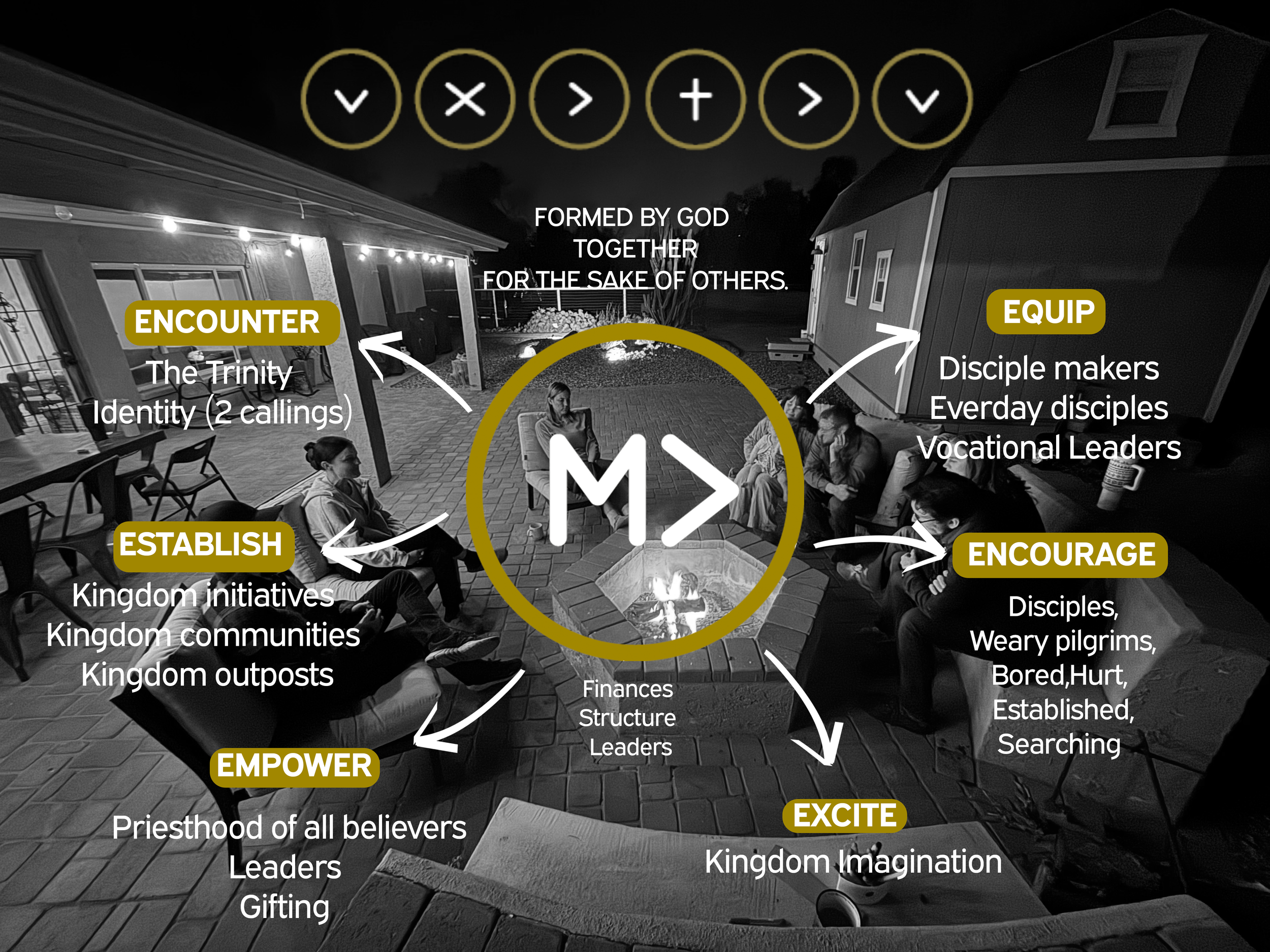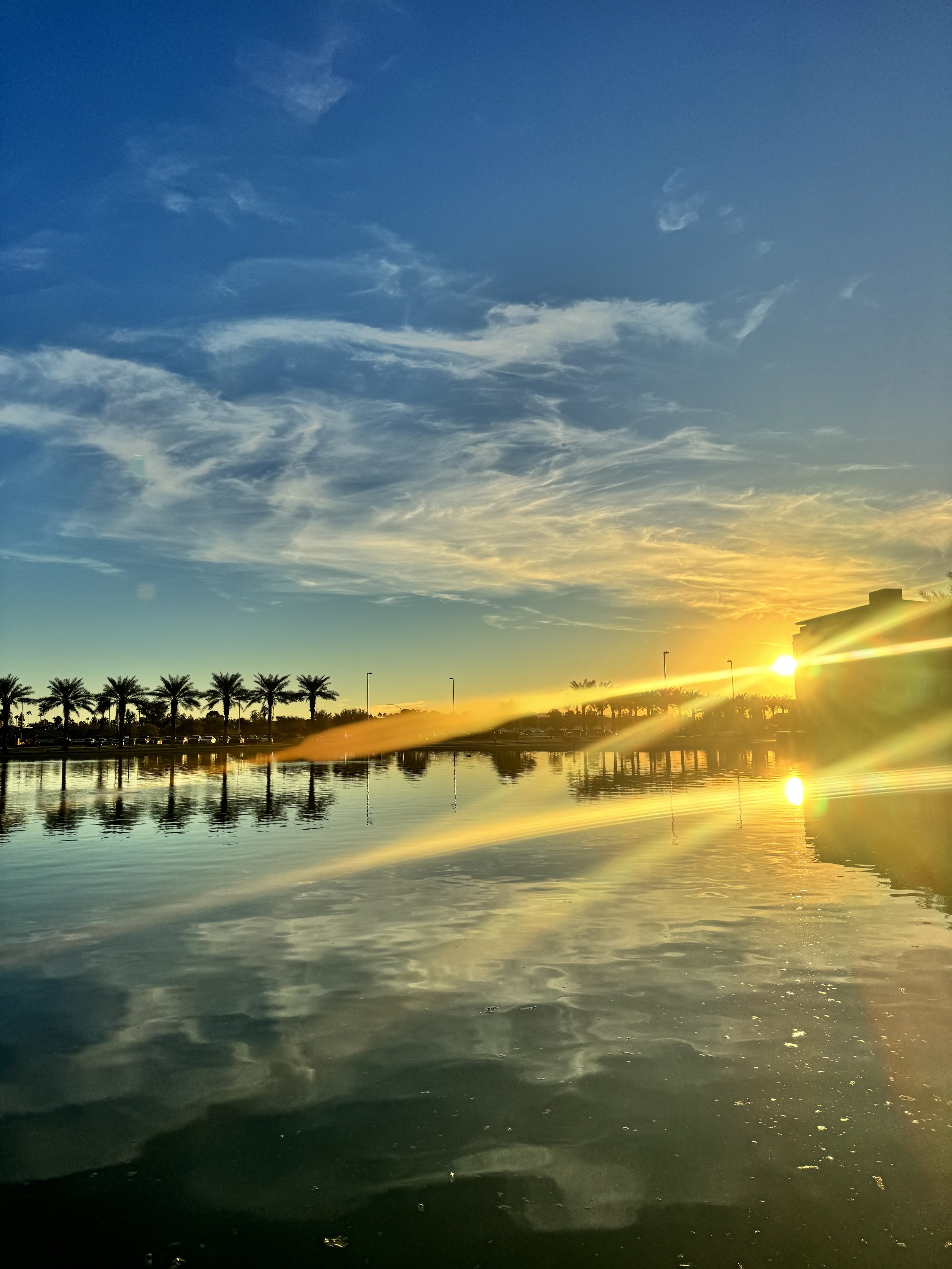Lent is the forty-day road that leads us toward the cross. And it starts next week!
Over the next 40 days we will rediscover that the love of God is not abstract or sentimental but costly and dynamic in its expression. We will thoughtfully engage with practices, encourage one another in grace, and encounter Jesus along the Way. As a season, Lent asks us to walk with Jesus long enough to be confronted, to be exposed, and to be changed- and to ask the questions of loyalty, faith, and what we truly believe is a flourishing life. The colors around our gathering space will change from Gold (celebration) to Purple (Preparation) as we enter into this season together as a church family- and our prayer is that Missio will prepare our own hearts to experience God afresh this season.
Background
The historic Church has walked this Way for centuries. The forty days of Lent have traditionally been set aside for repentance and preparation. New believers were readied for baptism. The whole community practiced prayer, fasting, generosity, and self-examination. Participating in this season has never been a means to earn God’s grace, but these intentional activities clear space for us to receive it afresh. This isn’t a season to try impressing God with self-discipline or sacrifices, but to actively remember the path of following discipleship is not always easy, but it is with Jesus- and that is enough. Lent has always been a season of returning too. During these days we focus on Returning to the gospel. Returning to dependence on God. Returning to the meaningful mission of living for the sake of others. Returning to the way of Christ and encountering him in our everyday experiences along the way.
This year, we will walk Lent under one simple Phrase: Encountering Jesus on the Way. Here are the things we want to lead our MC’s and friends into and how we see each connecting to the journey of Lent.
LENT INVITATIONS
Sunday Gatherings
Throughout Lent, our Sunday gatherings will continue our encounters with Jesus in the Gospel of John. Week by week, we will listen to his words, watch his interactions, and see how people respond when Light steps into the room and invites us to see everything differently now that He has arrived. God has moved in and we will continue to encounter him along the Way.
Ash Wednesday | 6am Gathering
We will begin early on Ash Wednesday (6am) because Lent begins with intention and an explicit expression of our need for Jesus. Matt and Ben will lead our community in receiving ashes as a sign that we are dust and that our lives are sustained by God’s mercy. Ashes have always been a mark of humility. A physical reminder that grace meets us honestly in the gritty realities of everyday life. A life that is always lived in the awareness that someday we will die.
This early morning gathering (6-6.45am) on Feb 18th is the first step on the road this Lenten season and we hope many from across our network of MC’s will be able to join us in downtown Mesa. (See video at end of post.)
A Forty-Day Fast
We are inviting Missio to consider a full forty-day fast.
Choose something personally, as a family, or even as an MC to lay down for the next 40 days. Fasting has always been a part of the life of the church annd exposes what we lean on and reveals how quickly we reach for comfort. Fasting retrains our desires and points us explicitly back to Jesus. Each time you feel an absence, let it become prayer. Let it turn your attention back to Christ. (Remember- This isn’t a sin you are stopping- that’s called repentance- this is a comfort or practice you put aside for 40 days to practice self control and rely on God.)
Fridays | Fasting From Food Together
On Fridays, we invite you to fast from food during the day as a community.
Each Friday we want to lead our community in remembering the cross. We want to let physical hunger teach us dependence. We will let discomfort draw us toward the One who gave himself for the life of the world. The one who called himself our very Bread.
A Practice of Generosity
Throughout church history Lent has also been tied to generosity. As we fast, we free up time, money, and attention. We do not want to keep that “extra” to ourselves, but allow the Spirit to open our imaginations to what we could do for the sake of others with the room we’ve made.. We encourage you to practice intentional generosity throughout these forty days. Give an increased percentage toward the work of the kingdom through Missio. Quietly support someone in need. Open your table and share your food. Share what you would have spent on going out to eat with neighbors. Be creative, and remember that generosity trains our hearts away from scarcity and towards abundance. (Feeding of the 5k anyone?) It reminds us that everything we have is a gift and aligns our lives with the self-giving love we see at the cross.
Lent Journals
Our Lent Journals will be available to help you walk the road intentionally. Scripture. Reflection. Practices. A companion for the journey. Anjelica beautifully designed these for last year, but they will serve us this year as well!
Good Friday Gathering (Time TBD)
Lent leads us to Good Friday- the day when we remember the brutal murder of Jesus and the world changing victory that it won. We aren’t sure the form yet, but we will definitely be having a Good Friday gathering.
Remember: Lent is not about stepping out of our everyday lives, but it is about encountering Jesus in them as we purposefully and proactively consider our apprenticeship to Jesus.
God has moved in.
Now we encounter Him Along the Way.







